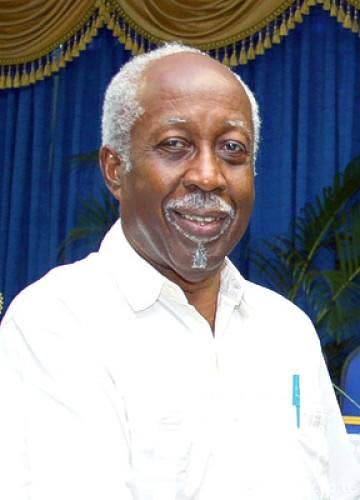Le Hunte and le Cabinet

REGINALD DUMAS
THERE ARE some aspects of Robert Le Hunte’s resignation letter of May 15 to the Prime Minister that interest me.
First, he said he and the PM had “both agreed that a critical plank of (the) vision (of developing the country and improving the lives of all its people) was to bring a reliable water supply to all citizens…”
I too agree on the criticality of that factor, but in TT the political aspect of water provision has, over the decades, tended to outweigh the hard economic decisions that must be taken.
I recall the 1986-91 NAR administration holding discussions with the Inter-American Development Bank (IDB) on the matter. And wasn’t it Basdeo Panday who later promised “water for all” by 2000? Twenty years after…But that’s not water. That’s the title of a novel by my somewhat better-known namesake, Alexandre Dumas. Fiction. Like water for all.
Second, Le Hunte said he had “attempted on numerous occasions to meet and discuss with (the PM his) views on this initiative with limited success.” That is a very worrying statement. A former Cabinet minister complaining that he found it difficult to meet his PM to talk about an issue both considered “critical” to the country’s development? What does this say about the quality of our governance? And about our socio-economic strategies?
Third, Le Hunte presented to the Cabinet a note on the matter. The note, which had been prepared after consultation with the IDB, didn’t pass muster. Le Hunte told the PM: “Clearly, there appears to be a conflict in policy that led to me being asked to withdraw the note. I accept the Cabinet’s position. Nonetheless, in my professional opinion, the subsequent instructions given will not achieve the government’s stated objectives and is (sic) not in the best interest of the water sector or the people of TT. I therefore respectfully request further clarification before advising the IDB.” This is puzzling.
Le Hunte had said earlier in his letter that the PM had instructed him to work with the IDB “on developing a comprehensive plan to bring TT to a 24/07 water supply position for all the citizens within the shortest possible time. And to move away from a dependency on desalinated water.”
He had therefore been working with the IDB, and presumably the note put to the Cabinet represented a harmony of approach with that organisation. What therefore was this sudden “conflict in policy” that caused the note to fail? What were the “subsequent instructions given,” by whom and why, and on what criteria? Why did Le Hunte believe they fell short of what was needed? Why, if he was resigning, did he need “further clarification before advising the IDB?” To clear the decks before he left?
Fourth, Le Hunte made a truly revealing statement. “Prime Minister,” he wrote, “there are a number of issues that I neither comprehend nor agree with. Yet I fully understand the principle of collective responsibility.” What he appears to have been diplomatically saying was that there have been decisions and directions of our Cabinet which he did not grasp or which he opposed.
That would suggest that the water issue over which he apparently resigned was simply the latest in a series of unhappy experiences, and, so it would seem, the straw that broke the camel’s back. He had been swallowing his discontent because of Cabinet collective responsibility, but he could no longer do so.
There are always differences and disagreements within a Cabinet. However, according to the Westminster system by which we say we are guided, if a minister has fundamental policy objections to a Cabinet’s position, that minister would be expected to depart. That is what Le Hunte has done.
Fifth, Le Hunte said that “the instructions given by (the PM) without any appropriate discussion” – a reminder of his previous complaint about his “limited success” in trying to meet the PM – “suggest a loss of confidence by you in me.” He therefore offered his resignation to “(allow the PM) to achieve (his) objectives.”
Offering a resignation isn’t quite the same thing as tendering or submitting one; it leaves the door open for the offeree to decline or accept. But Le Hunte’s last paragraph slammed the door shut: “I wish to thank you for the opportunity to serve as Minister of Public Utilities.” That language is very final.
Le Hunte has since adhered to the Westminster tradition in another way: he has refused to join in the bacchanal of who said what at the fateful Cabinet meeting. “It is impossible,” says my constitutional law textbook, “to preserve a united front (in a Cabinet) if disclosures are permitted of differences which have emerged in arriving at a decision.”
Not everyone understands that.


Comments
"Le Hunte and le Cabinet"